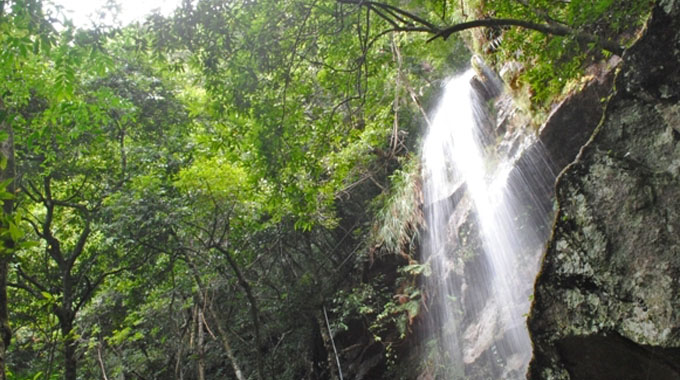(TITC) - Besides pagodas and towers with spiritual values and historical meanings, Yen Tu Landscape Relic Site also owns majestic mountainous natural sceneries, typically the scenery along the road to Vang (Gold) Waterfall.

From the cable car station in the west of Hoa Yen Pagoda, going along the stone paved path, visitors will find the road-sign to Vang Waterfall. The first stop on this route is Ngu Doi Waterfall. According to legend, this is the place where King Tran Nhan Tong often took a bath. The waterfall is 18m high and rises from Long Khe Stream in Yen Tu Mountain. The second stop is Thien Dinh Pagoda where Tran Nhan Tong sit in zazen after his bath in Ngu Doi Waterfall. Now, the remains of the pagoda is only the foundation. From here, going straight, visitors will see 14.5m-high Vang Waterfall formed from the second branch of Long Khe Stream.
One impressive thing for visitors during their pilgrimage to Vang Waterfall in Yen Tu is primeval forest on the both roadsides. The forest has many creepers, wild plants alternated with bamboos and pines. In particular, this forest is home to apricot trees known as “Yen Tu venerable yellow apricot” with height of more than 10m and diameter of 40-50cm. Legend has it that in the 13th century, King Tran Nhan Tong and Buddhists planted yellow apricot trees throughout Yen Tu Mountain, especially in Dong (Bronze) Pagoda, Mot Mai (One-roof) Pagoda, Vang (Gold) Waterfall, Bac (Silver) Waterfall…
If having the opportunity to visit Yen Tu Landscape Relic Site, especially in mid of the fourth lunar month, visitor can admire yellow apricot flowers blooming in large clusters, and pervading pure fragrance. With the inherent characteristics, Yen Tu yellow apricots are evaluated by scientists as one of valuable genetic resources of Viet Nam and have been proposed multiplication for sexual preservation and development.
Thu Giang